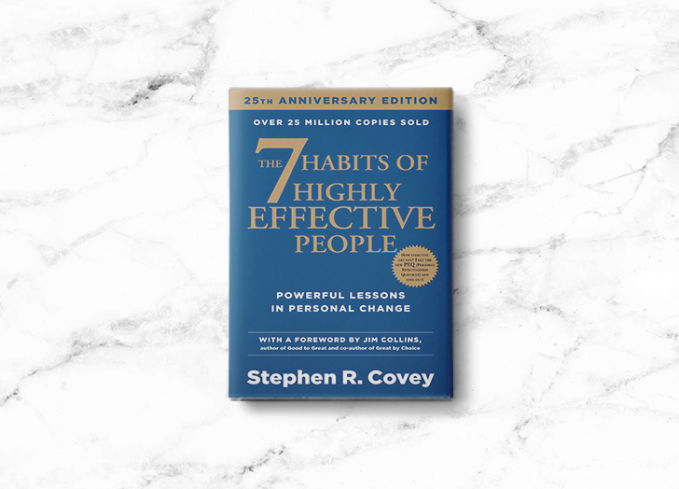The Importance of “The 7 Habits of Highly Effective People”
Stephen R. Covey’s book, The 7 Habits of Highly Effective People, published in 1989, has become a cornerstone of personal development literature. Its enduring relevance and influence stem from its foundational principles that guide individuals toward greater effectiveness in both personal and professional realms. Here’s a closer look at why these habits are significant and how they can transform lives.
1. Holistic Approach to Effectiveness
Covey’s framework emphasizes a holistic approach, integrating personal and interpersonal effectiveness. Rather than focusing solely on productivity or success, Covey encourages individuals to develop character and principles that foster long-term success and fulfillment. This perspective shifts the focus from merely achieving goals to building a meaningful life.
2. Proactivity Over Reactivity
The first habit, “Be Proactive,” emphasizes taking responsibility for one’s life and choices. Covey asserts that proactive individuals recognize their ability to influence their circumstances rather than merely reacting to external forces. This mindset empowers individuals to take charge of their actions and decisions, leading to greater control over their lives.
3. Goal Setting with a Vision
“Begin with the End in Mind,” the second habit, encourages individuals to define their values and long-term objectives. By envisioning their desired outcomes, people can make informed decisions aligned with their ultimate goals. This habit fosters clarity and purpose, guiding individuals in their daily actions and choices.
4. Prioritization and Time Management
The third habit, “Put First Things First,” focuses on prioritizing tasks based on importance rather than urgency. Covey introduces a matrix to help individuals distinguish between what is urgent and what is truly important. This approach promotes effective time management, allowing individuals to invest their energy in activities that align with their long-term goals.
5. Interdependence and Collaboration
Habits four through six emphasize the importance of collaboration and effective communication. “Think Win-Win” promotes a mindset of mutual benefit in relationships, while “Seek First to Understand, Then to Be Understood” emphasizes empathetic listening. Covey’s focus on interdependence fosters stronger relationships and teamwork, essential skills in both personal and professional settings.
6. Continuous Improvement and Renewal
The seventh habit, “Sharpen the Saw,” underscores the importance of self-renewal and continuous improvement across four dimensions: physical, mental, emotional, and spiritual. Covey encourages individuals to invest in their personal growth and well-being, recognizing that ongoing development is crucial for sustained effectiveness.
7. Legacy and Impact
Ultimately, the principles outlined in The 7 Habits of Highly Effective People inspire individuals to consider the legacy they want to leave behind. By cultivating effective habits rooted in strong character and values, individuals can make a positive impact on their families, communities, and organizations.
Conclusion
The 7 Habits of Highly Effective People remains a vital resource for those seeking personal and professional growth. Covey’s timeless principles offer a roadmap for developing effective habits that lead to meaningful success and fulfillment. By adopting these habits, individuals can enhance their effectiveness, improve their relationships, and create a lasting legacy, proving that true effectiveness is grounded in character and purpose.
